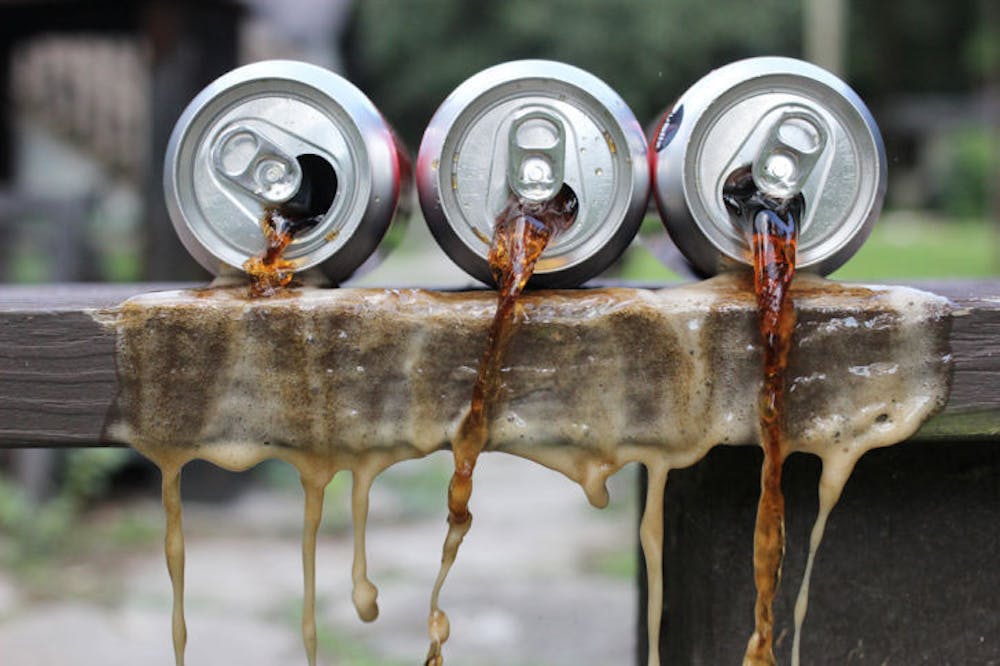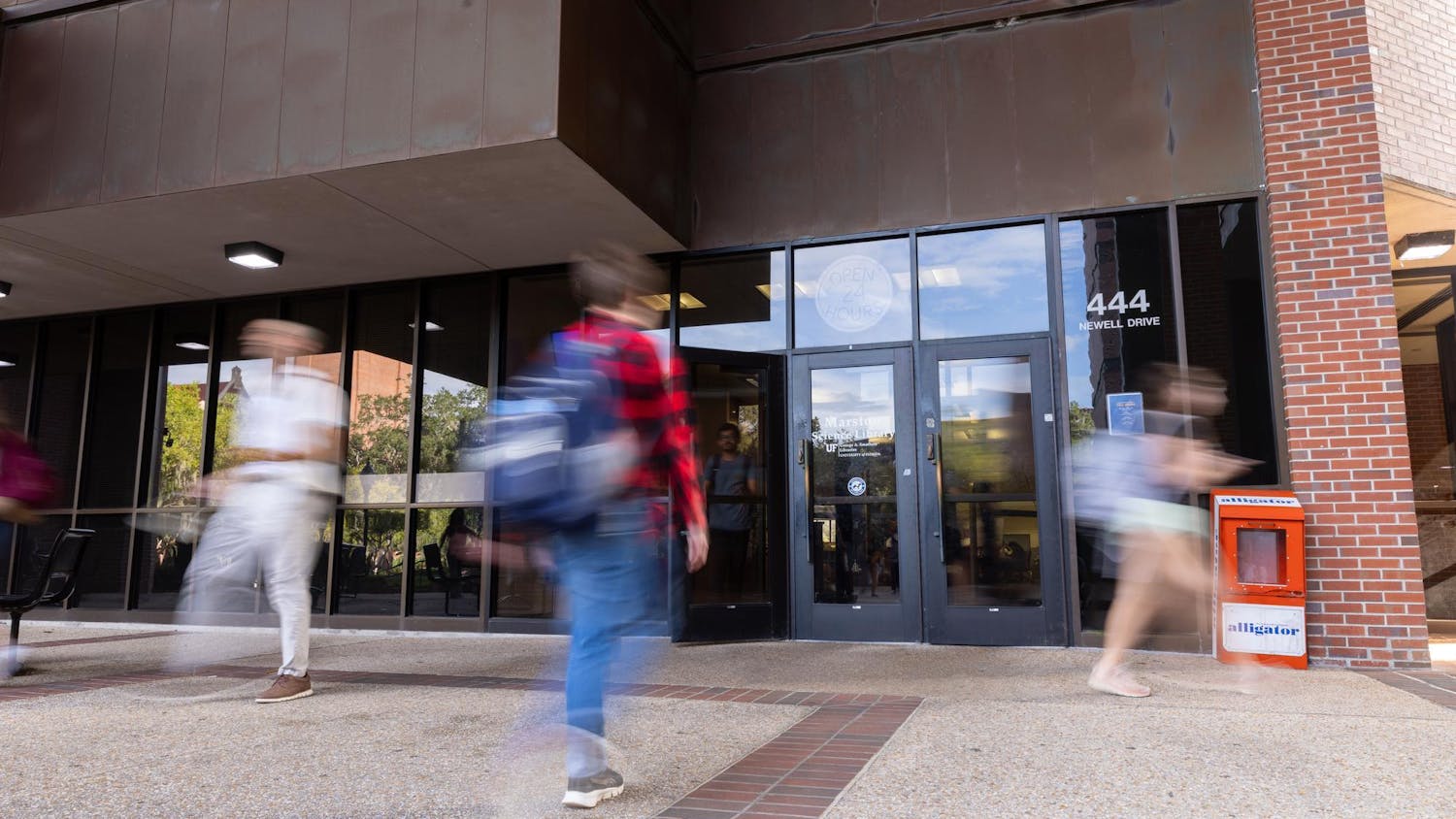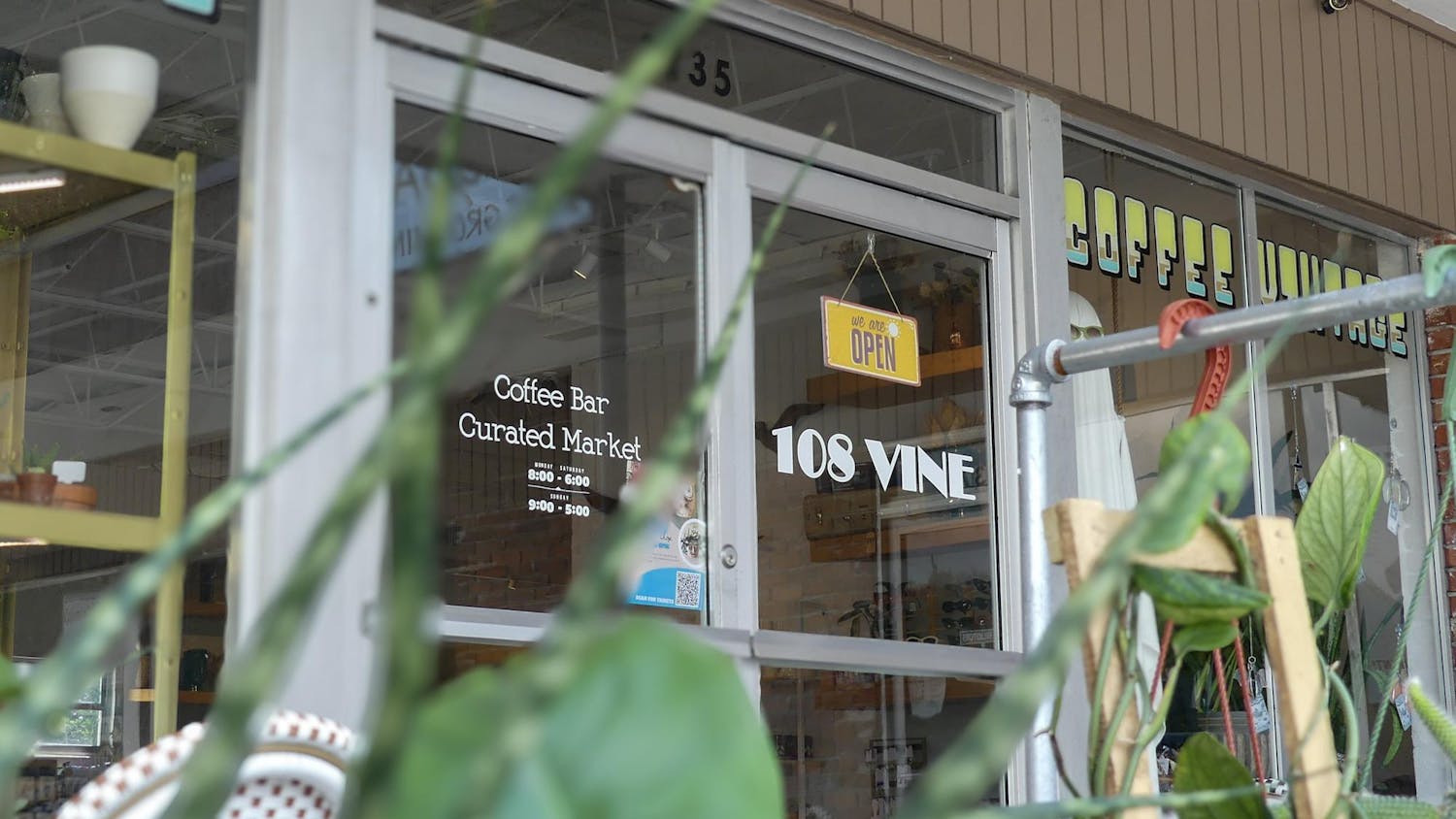Getting energy and alertness from sugary drinks has more to do with willpower than a sugar rush.
A study, published Aug. 19 online in the Proceedings of the National Academy of Sciences, observed two groups of students as they drank lemonade sweetened with sugar and a sugar substitute.
Students who claimed they self-generated energy tested the same in both trials, while students who said they needed sugar to remain alert actually tested better when drinking the lemonade sweetened with sugar, according to http://www.sciencenews.org.
Bruce Goldberger, director of UF Health Forensic Medicine, said people who drink large quantities of sugary drinks typically use them as a crutch.
“Like cocaine or heroin, it’s immediately rewarding to the brain,” Goldberger said. “It’s pleasure at the highest degree.”
He said using sugary drinks to boost energy levels isn’t an effective means to stay awake.
With the high-calorie content and the very brief physical effects, drinking a sugary drink is one of the worse options when trying to replenish energy.
In the long term, adopting appropriate study habits or maintaining a healthy sleep schedule is better than searching for a sugar high every time you have a test, he said.
“Just look around campus and you’ll see people holding a can of soda or a Red Bull or Starbucks coffee,” he said. “People drink these things because they taste excellent.”
Natalie Rella, a health promotion specialist at Gatorwell Health Promotion Services, said a typical 32-ounce soda holds 150 calories and 44 grams of sugar.
“Think of it like sticking 26 teaspoons of sugar into your mouth at once,” Rella said.
Harry Beck, a 20-year-old anthropology junior, said his go-to drink when he’s feeling tired is Amp with sodas mixed in between meals.
“The way caffeine and sugar affect me makes things a lot easier,” Beck said. “I think a lot clearer.”
He said if he knows he’s going to a particularly long class or has to cram for a test, he’ll prepare with a couple of energy drinks.
Although he knows the drinks are unhealthy, he said that until he sees negative effects, he’ll keep on guzzling them.
“It’s better than smoking a pack of cigarettes anyway,” he said.
A version of this story ran on page 5 on 8/29/2013 under the headline "More energy from a sugar high kind of a lie, study shows"
A set-up photo shows soda spilling out of cans. A recently published study suggests that the alertness experienced after drinking sugary beverages is actually more of a placebo effect than the effect of the sugar.






